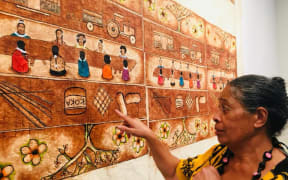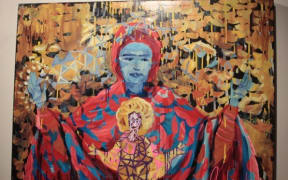A mother and daughter's efforts to rekindle the lost tradition of tapa-making in a Tongan village is being celebrated as part of this year's women's suffrage commemorations in New Zealand.
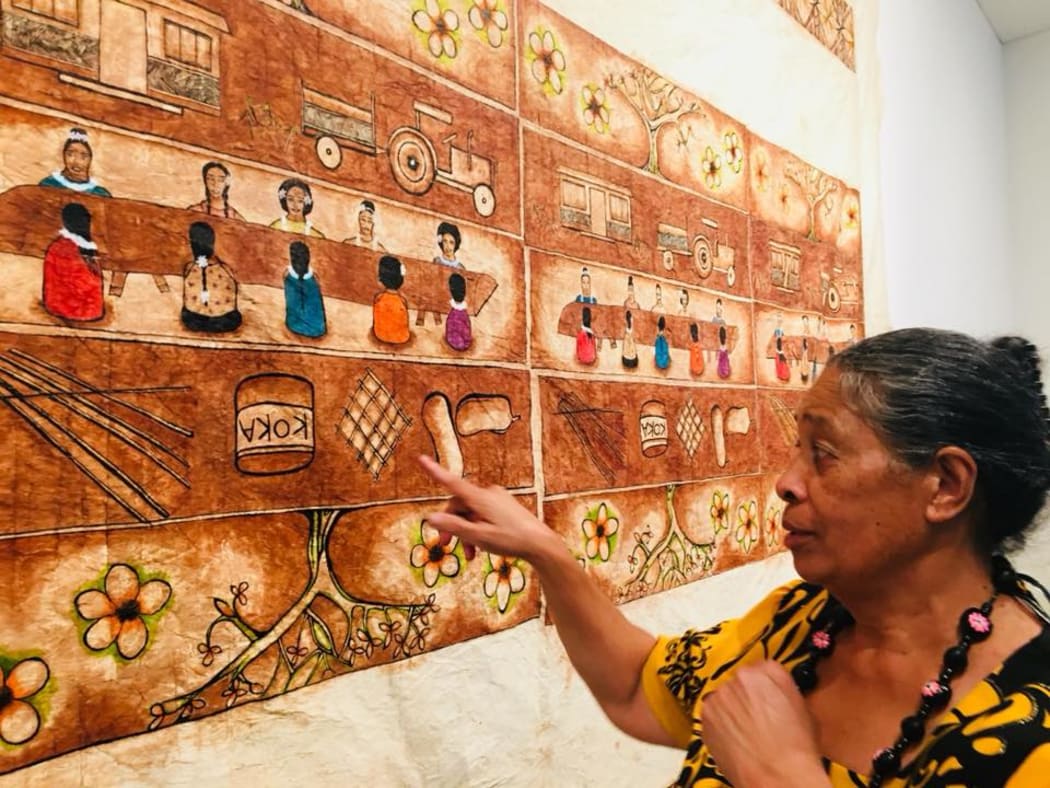
Sulieti Fieme'a Burrows at Falevai Flava Photo: Pele Gillies
When Sulieti Burrows and her daughter Tui Emma Gillies visited the village of Falevai on Vava'u back in 2014, it provided an incredible opportunity.
The iconic art of making tapa or ngatu had not been practised in the village on Vava'u for several decades prior.
Mother Sulieti Fieme'a Burrows said they had helped revitalise tapa-making with other local women, but it also evoked childhood memories, like one of her own mother hitting the bark to make the tapa.
"Actually that's very important because that's my village. And that is where I grew up," Burrows said.
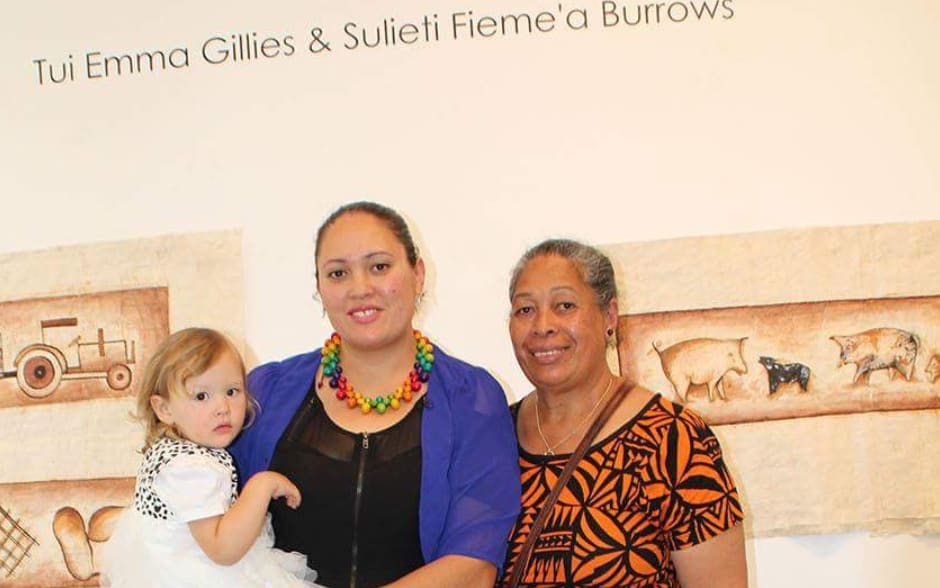
Tui Emma Gillies and Sulieti Fieme'a Burrows Photo: Tui Emma Gillies
Burrows said when she was a child it always sounded as if people were just playing the drums.
"And we went over there to do the project and it just reminded me about everything growing up, and I could see my mum sitting over there, beating. "
Tui Emma Gillies worked alongside her mother to produce large scale ngatu (tapa) while encouraging locals to replant.
"At the time there were no mulberry trees growing there," she said.
"Just a place where women weaved ... no tapa cloth, no mulberry trees and this long piece of wood where they make ngatu on, was just in this abandoned home."
"So we just pulled it out and started to use it again."
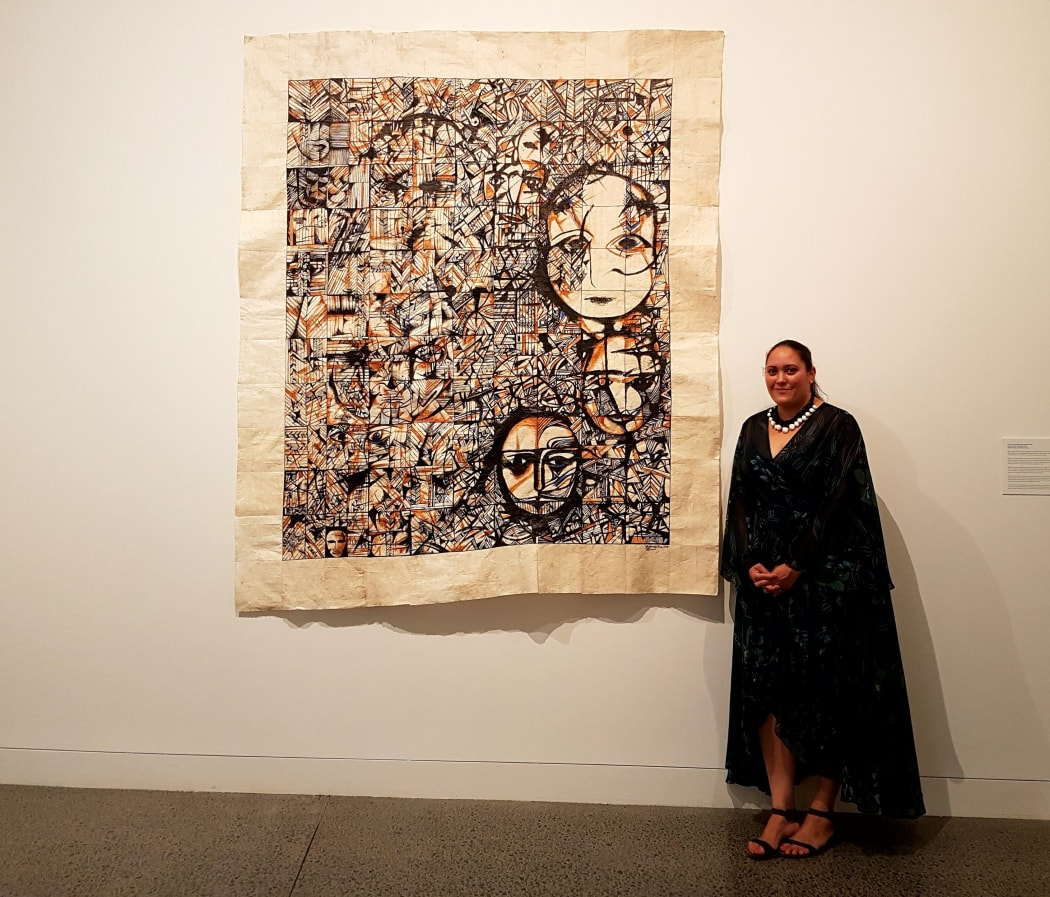
Tui Emma Gillies at Falevai Flava exhibition, Mangere Arts Centre. Photo: Pele Gillies
Auckland Council's Manager of Arts and Culture Programming Hanna Scott said she saw the pair's proposal to have a tapa exhibition of their work from Falevai at Mangere Arts Centre back in 2016, but wanted to schedule it in later.
"And the reason is that this year's programme is centred on the 125th anniversary of women's suffrage," she said.
"I really enjoyed their kaupapa of mother and daughter travelling back to their home village and giving knowledge of how to make ngatu back to their traditional community and thought it had a good place in the 2018 programme."
Gillies said they also included old proverbs well known in the area in their work.
"Huge work up there called Falevai Moe Famili. Shows symbols of what we see Falevai to be," she said. "It's got women, family, the animals."
She said it also had an old proverb about a woman who used to sit opposite Falevai on a rock.
"She's actually a ghost, who used to brush her hair on the rock and men would go over to her but crash on the rock and then she'd disappear," Gillies said.
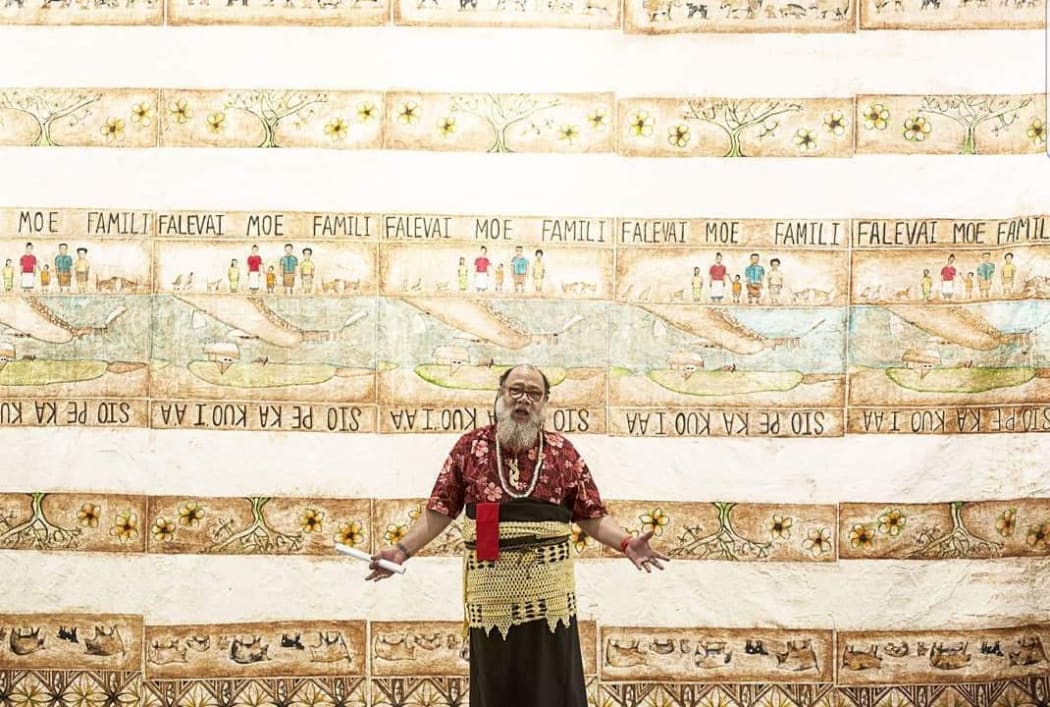
Falevai moe Famili tapa piece at Mangere Arts Centre Photo: Raymond Sagapolutele
Burrows also incorporated new knowledge from a quilt conference she'd attended in Birmingham last year.
"You know when I looked at that, it was really emotional and there was a new one there too that we'd done with a quilt," Burrows said.
She said change was more evident every time she went back to her village.
"It is a very big island, that is divided into three villages. Falevai is one of them and a lot of people used to live over there."
"When I went back after 30 years, when my mother passed away, there were only just 20 or so houses left and people had moved."
Ms Burrows said that she had high hopes that things were still ongoing back in the village, as the duo had been given more funding to continue their work on island.
"When we went over there and we came back and then we went back again, they started planting the mulberry tree over there," she said.
"But I look forward to going back this time and see if they still continue or they stop. "
The director of Pasifika at Massey University, Associate Professor Malakai Kolomatangi, agred that ngatu is dying out in some parts of Tonga, but thankfully not all.
He said while their contemporary designs may not appeal to purists of the art, he supports the art.
"I agree that the art itself has to be relevant to contemporary audiences and if it is not relevant of course the art dies out," he said.
"And to adapt the motifs and designs to more contemporary tastes I think is a good thing."
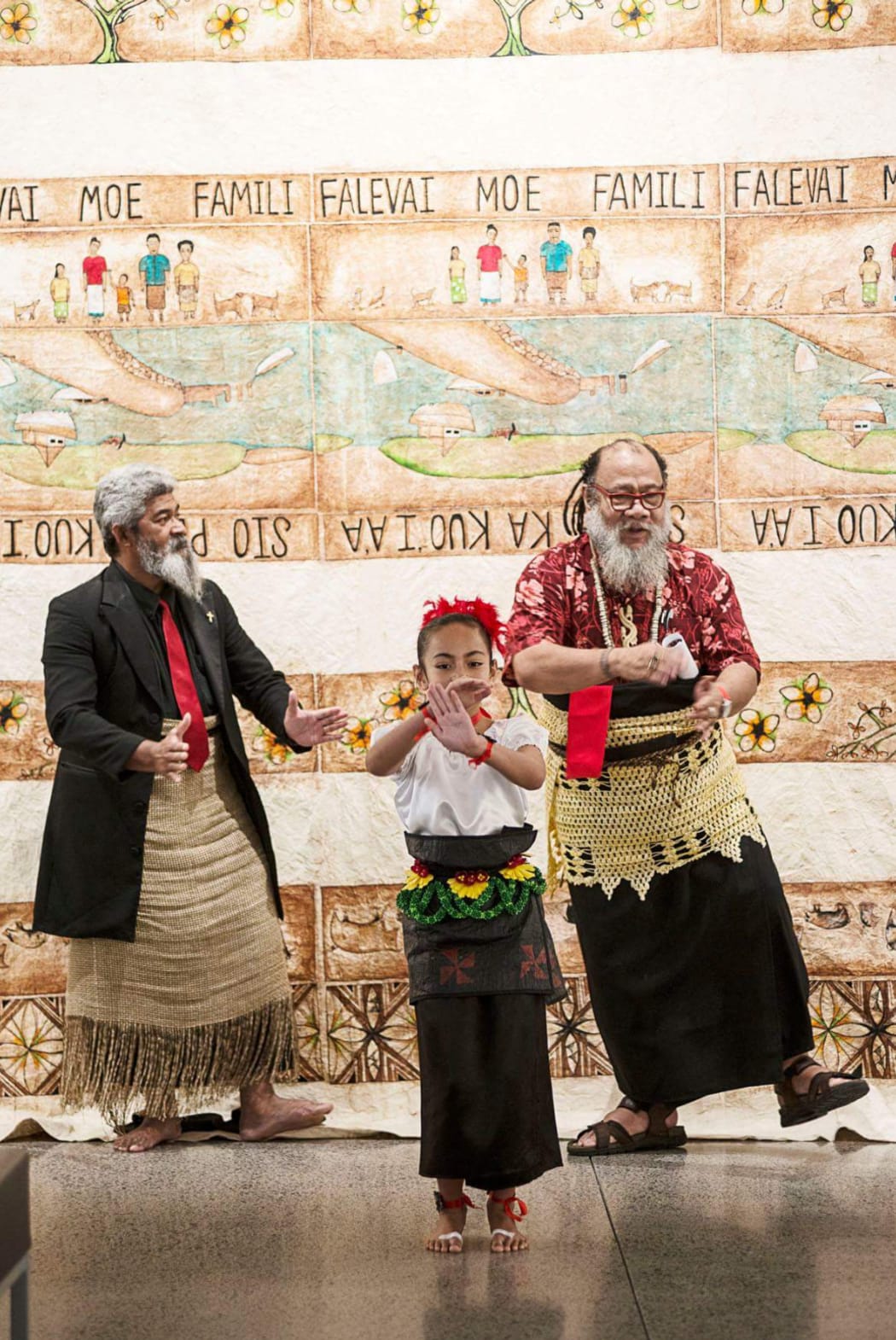
Falevai Flava launch at Mangere Arts Centre. Tui Emma Gillies and Sulieti Burrows ngatu and tapa exhibition. Photo: Raymond Sagapolutele
He said while ngatu is still very much women's work, the narratives are what make each piece unique and often you can tell right away its purpose and origin.
Hana Scott said audience reactions to this exhibition and subsequent workshops had been positive and people who had seen it just love the history and narratives around the work.
"We have had a very inspiring reaction to the public programmes associated with the exhibition," said Scott.
"They hosted a workshop to learn how to make ngatu and use the kupesi rubbings and that was well subscribed."
"And another alongside it is happening this weekend. You can get a woman daughter portrait sitting done and this plays into this idea about women's ancestral knowledge and how we pass on information through generations but this has been completely oversubscribed," she said.
Falevai Flava , a collaborative art project, is on display as part of Auckland's Art Festival at the Mangere Arts Centre until 14 April.

